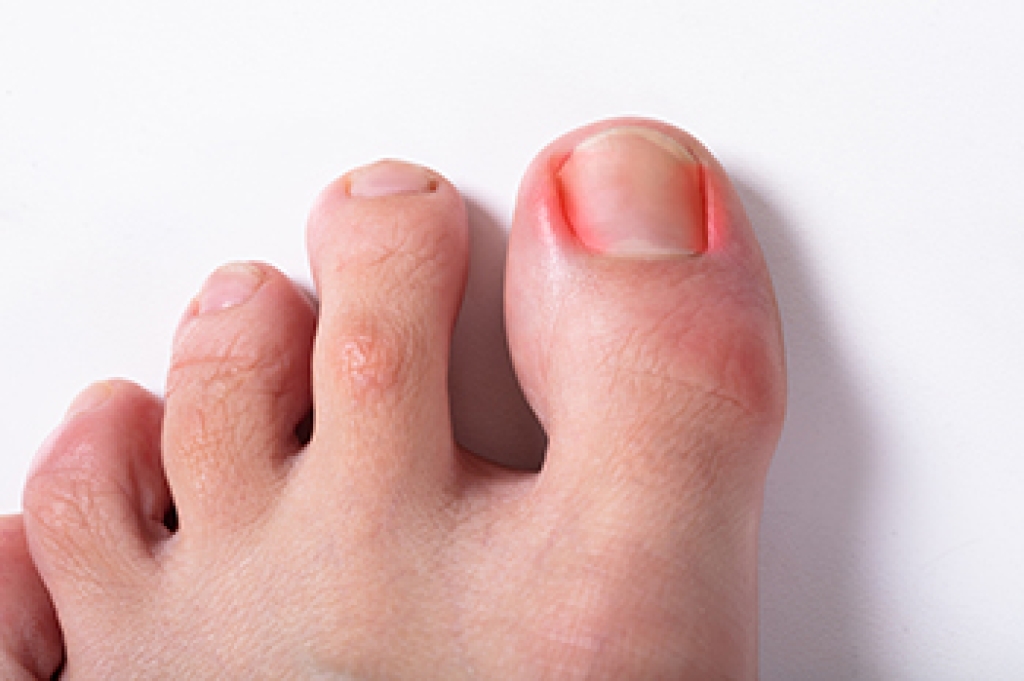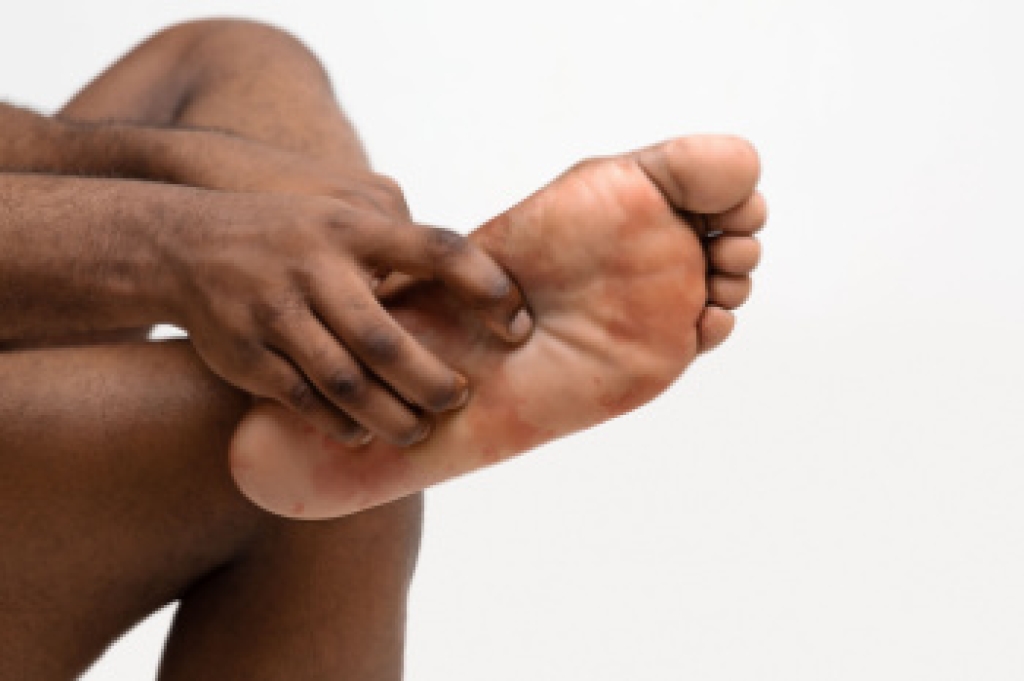
An ingrown toenail occurs when the edge of the toenail grows into the surrounding skin, often leading to pain, swelling, and redness along the toe. It may feel tender to the touch, especially when wearing shoes, and in some cases can become infected, causing pus or increased warmth in the area. Common causes include improper nail trimming, tight footwear, toe injuries, or genetic predisposition. Symptoms typically begin with mild discomfort and can progress to severe pain, if left untreated. A podiatrist can diagnose an ingrown toenail through a physical examination and assess whether there is any infection or underlying issue. Treatment options include soaking, lifting the nail, partial nail removal, or in chronic cases, removing part of the nail root. Proper nail care education and footwear recommendations can also help prevent future occurrences. It is suggested that you make an appointment with a podiatrist at the first sign of discomfort to avoid complications and receive effective, lasting relief.
Ingrown toenails may initially present themselves as a minor discomfort, but they may progress into an infection in the skin without proper treatment. For more information about ingrown toenails, contact Christian Smith, DPM of UTOEpia Foot and Ankle Specialist. Our doctor can provide the care you need to keep you pain-free and on your feet.
Ingrown Toenails
Ingrown toenails are caused when the corner or side of a toenail grows into the soft flesh surrounding it. They often result in redness, swelling, pain, and in some cases, infection. This condition typically affects the big toe and may recur if it is not treated properly.
Causes
- Improper toenail trimming
- Genetics
- Improper shoe fitting
- Injury from pedicures or nail picking
- Abnormal gait
- Poor hygiene
You are more likely to develop an ingrown toenail if you are obese, have diabetes, arthritis, or have any fungal infection in your nails. Additionally, people who have foot or toe deformities are at a higher risk of developing an ingrown toenail.
Symptoms
Some symptoms of ingrown toenails are redness, swelling, and pain. In rare cases, there may be a yellowish drainage coming from the nail.
Treatment
Ignoring an ingrown toenail can have serious complications. Infections of the nail border can progress to a deeper soft-tissue infection, which can then turn into a bone infection. You should always speak with your podiatrist if you suspect you have an ingrown toenail, especially if you have diabetes or poor circulation.
If you have any questions, please feel free to contact our office located in Memphis, TN . We offer the newest diagnostic and treatment technologies for all your foot care needs.




